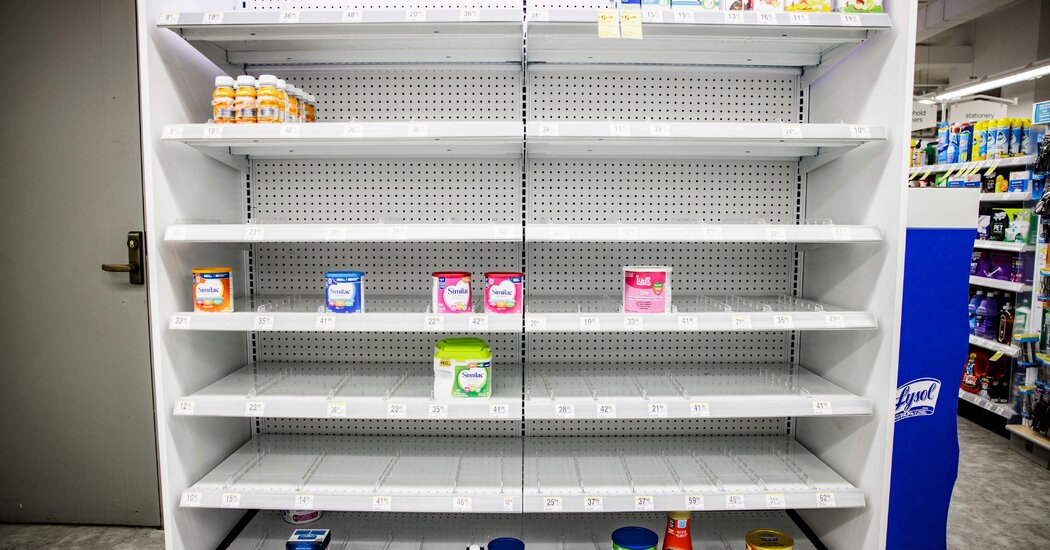A severe baby food shortage has prompted the Federal Trade Commission to launch an investigation into industry consolidation and whether online resellers have taken advantage of desperate families struggling to find formula.
“The FTC is launching a public inquiry to identify the factors that contributed to the deficit or hindered us from responding to it,” the agency’s chairman Lina M. Khan said in a statement on Tuesday. “Learning from this experience can help determine how we can minimize the risk of similar shortages in the markets for other life-extending products.”
The agency said it would examine patterns of mergers and acquisitions to better understand how the industry — now dominated by four manufacturers — became so concentrated and how that consolidation should inform future merger assessments. The FTC will also investigate federal regulations and trade barriers that prevent foreign companies from entering the infant formula market.
Read more about the shortage of baby food
Federal officials are also seeking public input on cases where families believe they have been ripped off when they tried to purchase a formula or were forced to pay exorbitant prices from online resellers.
The US infant formula industry has been under intense scrutiny in recent weeks, with lawmakers and consumer advocates questioning why the production of a critical source of infant formula has long been controlled by only a handful of players. Abbott Nutrition, which has about 48 percent of the market, rocked the baby food market in February when it voluntarily recalled some of its most popular powder formulas and closed a factory after four babies who had consumed some of Abbott’s products fell ill. were from bacterial infections. Abbott has said there is no evidence that the formula caused the four diseases, and no samples of the bacterium, Cronobacter sakazakii, from the infants have found the same strains in the plant.
Due to the massive shortages, parents are frantically looking for food for their children and stores have restricted the sale of infant formula. The Biden administration has taken steps to reduce the supply shortage, including by invoking the Defense Production Act to ramp up production.
The study follows growing demands from lawmakers to investigate and review the industry. Senator Tammy Duckworth, an Illinois Democrat, urged the FTC this month to launch a comprehensive investigation into the industry and the market conditions that led to the shortages.
Navigating the US Baby Food Shortage
A growing problem. A nationwide baby food shortage – caused in part by supply chain problems and exacerbated by a recall from baby food manufacturer Abbott Nutrition – has left parents confused and concerned. Here are some ways to deal with this uncertainty:
The FTC said it would work with the Department of Agriculture to examine the impact of a program that aims to help low-income families buy formulas and has helped contract large companies become giant players in the industry. . The Special Supplemental Nutrition Program for Women, Infants and Children, more commonly known as WIC, is a federally funded program that provides grants to states to ensure low-income pregnant or postpartum women and their children have access to food. The program is administered by government agencies and purchases more than half of all infant formula in the United States.
State WIC agencies cannot legally purchase formula from a manufacturer. They must bid competitively on contracts and select one company, which will become the exclusive supplier of formulas for all WIC recipients in the state. In return, manufacturers must give states significant discounts on the formula.
Researchers say the bidding system could make it more difficult for smaller companies to enter the market. According to research by David E. Davis, an economics professor at South Dakota State University, brands that win exclusive contracts gain exposure in stores, boosting sales among households not receiving WIC benefits.

